Welcome to my newsletter, ‘Bible, Mission, and More’, where I share what’s on my mind as I teach, research, and write on the Bible and mission, children-at-risk in the Bible and contemporary society, Psalms and Wisdom Literature, and a range of other topics. I teach at All Nations Christian College in the UK, though views are my own. You may also like to check out my Bible and Mission website.
Each Tuesday I’ll share something I’ve read, something I’ve written or recorded, something on learning and teaching, and a quote to reflect on.
Something read – Miroslav Volf on joy and human flourishing
As I continue to work on the theme of joy in the Bible I’ve been returning to the final chapter of Miroslav Volf’s edited volume, Joy and Human Flourishing: Essays on Theology, Culture, and the Good Life (Fortress, 2015; for a previous post on the volume as a whole see read this).
Volf offers a concluding chapter, ‘The Crown of the Good Life: A Hypothesis’ where he teases out a definition of joy and how it relates to human flourishing. I’m going to be using some of his ideas as a way of framing ‘joy’ in a paper on joy in the book of Job at an upcoming conference.
Volf packs a lot into just nine pages but a few takeaways include:
‘Depending on the intensity of the feeling, joy can range from exuberance… to calm delight’ (p. 129)
Joy comes from recognising something as good in itself, and also wondrous and unowed (p. 129)
Joy can be defined as ‘emotional attunement between the self and the world–usually a small portion of it–experienced as blessing.’ (p. 130)
Joy can be experienced alongside other emotions, including grief (p. 130)
Joy can be commanded but it can’t be imposed (p. 132)
Joy necessarily involves the future – ‘it simply delights in and celebrates the good that is and proclaims, implicitly, that it is good for that good to continue to be.’ (p. 132)
‘Joy is best experienced in community. Joy seeks company… and the company of those who rejoice feeds the joy of each… when we enter such a space, we enter into joy, and, often, joy enters into us.’ (pp. 132-133)
The rest of the volume includes essays by Jürgen Moltmann (‘Christianity: A Religion of Joy’); Marianne Meye Thompson (‘Reflections on Joy in the Bible’); N.T. Wright (‘Joy: Some New Testament Perspectives and Questions’); Charles Mathewes (‘Towards a Theology of Joy’); and Mary Clark Moschella (‘Calling and Compassion: Elements of Joy in the Lived Practices of Care’). If you have Perlego you’ll find it on there.
Something written – Faith, wisdom, and Father’s day
In the UK we are approaching Father’s day (June 15th) and I was asked to write a biblical reflection as part of my role as Theologian in Residence with Safe Families Home for Good.
I decided to focus on the opening chapter of the book of Proverbs and explore the way the father is portrayed urging his son to make wise decisions. I also note the warning about listening to other voices that make false promises of belonging, purpose, power, and fast wealth. I see a degree of vulnerability in the father that is common to all parents. Here is part of it:
‘To be a parent is to be vulnerable – nurturing our children as they grow up in a world that is filled with joy, wonder and exciting possibilities, but also complexity, temptation, and danger.
The book of Proverbs opens with the voice of a father, who is only too aware of this. He speaks to his son who we imagine is getting ready to go out into the world, moving beyond the immediate influence of his parents. Nine chapters urging his son to appreciate and embrace wisdom then gives way to hundreds of proverbial sayings to be chewed over and used as guides for making good decisions in life.
Good decisions. This is what wisdom is about in the Bible: applying knowledge and understanding in the right way at the right time to navigate the complexities of life. Proverbs imagines all areas of life: money, relationships, work, community, and speech to name a few. It means having the skill to know the right course of action, and the will to do it, even when it is hard. Isn’t that what we want for our kids as well? The tools and the tenacity to navigate life?’…
Read the article in full here: A Father’s Day Reflection on Wisdom and Faith
Learning and teaching – Finding free Missiology books
Finding accessible and high-quality resources is important for every student, especially when studying remotely. The Edinburgh Centenary series was produced by Regnum over several years and, to quote the publisher’s website, ‘grew out of the Edinburgh 2010 conference [marking the centenary of the influential Edinburgh 1910 conference]. Initially conceived as a modest attempt to capture the key themes and outcomes of the conference, the series grew to 35 volumes with over 600 contributors from every part of the global church.’
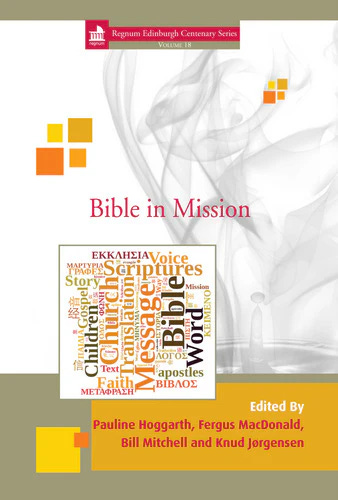
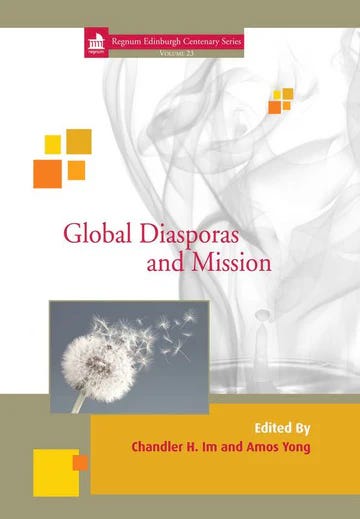
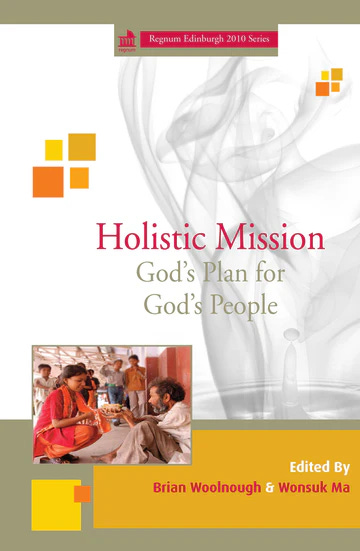
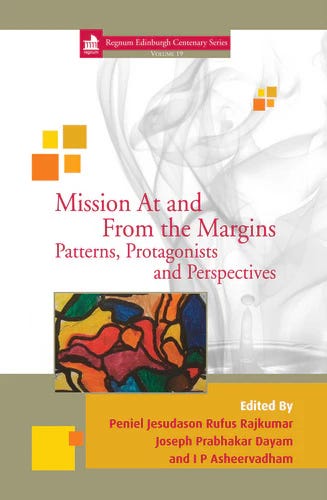

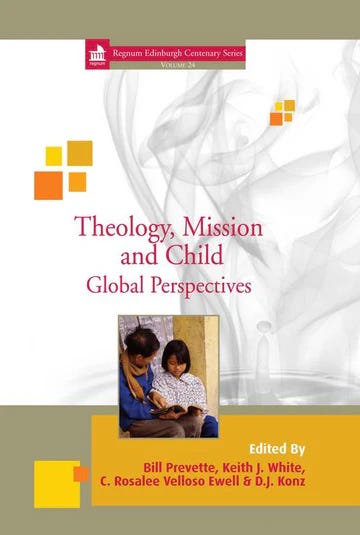
The series covers a wide variety of mission topics by scholars from all over the world. Most of the volumes can be viewed and downloaded for free at Oral Roberts University’s Digital Showcase website. For a complete list of the series see Regnum’s website.
Volumes in the series include:
Creation Care in Christian Mission; Bible in Mission; A Learning Missional Church; Mission and Power; Mission Spirituality and Authentic Discipleship; Global Diasporas and Mission; Holistic Mission; Theology, Mission and Child; Theology, Mission and Child; The Lausanne Movement; Mission and Postmodernities; Called to Unity: For the Sake of Mission; Witnessing to Christ in a Pluralistic Age; The Reshaping of Mission in Latin America; Reflecting on and Equipping for Christian Mission; Mission in Central and Eastern Europe; Freedom of Belief & Christian Mission; Foundations for Mission; The Church Going Glocal; The Church Going Glocal; Witnessing to Christ Today; Witnessing to Christ in North East India; Orthodox Perspectives on Mission; Mission Then and Now; Mission Continues; Mission At and From the Margins; Life-Widening Mission; Interfaith Relations after One Hundred Years; Evangelism and Diakonia in Context; Evangelical and Frontier Mission; Engaging the World; Ecumenical Missiology; A Century of Catholic Mission; Pentecostal Mission and Global Christianity; Mission Today and Tomorrow; Mission as Ministry of Reconciliation; Korean Church: God's Mission Global Christianity
Quote – Helen Barrett Montgomery on the missionary character of the Bible
‘The missionary character of the Bible is clearly seen in two great categories; (i) in its essential character; (2) in its expressed purpose and plan.
The Bible is in its very subconscious missionary. Not only because of what it advocates or purposes or states, but because of what it is, the Bible is the great Missionary Charter of the Church.’
(in The Bible and Missions, 1920, p. 8) Available on archive.org
Thanks for joining the journey and see you next week,
Tim





